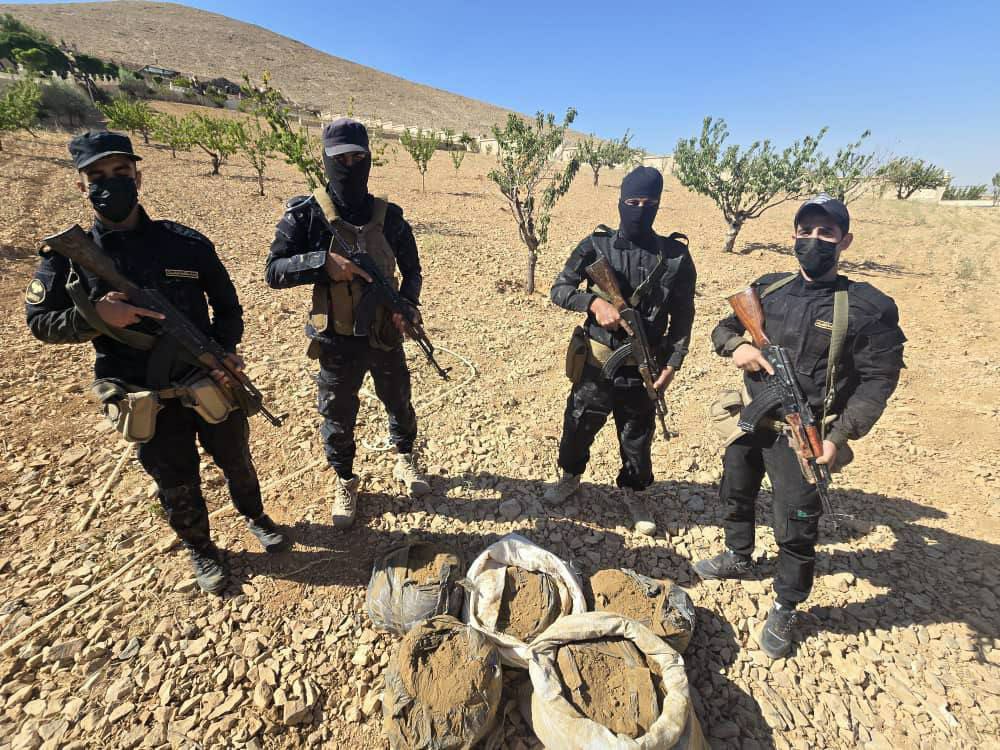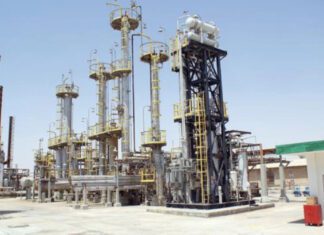
Syrian authorities reported the seizure of nearly 500 kilograms of hashish and 198 packets of narcotic pills this week after clashes with smugglers on the Lebanese border, according to the Interior Ministry. Officials said traffickers fled following the confrontation in the Zabadani area, leaving the shipment behind.
On Tuesday, Lebanese media reported additional gunfights near Sarghaya in Syria and Marboun in Lebanon, resulting in the deaths of a Syrian and a Lebanese national. Another Lebanese man, Fayez Issa, was injured and taken to a hospital.
The rugged, poorly demarcated border has long enabled smuggling. “The intertwined family and tribal relationships on both sides make border control efforts particularly difficult,” the ministry said in a statement.
Government Efforts to Dismantle Trafficking Networks
Since the fall of the Assad regime last year, Syria’s new government has intensified anti-narcotics operations. SANA reported the discovery of a hashish farm in Safira, Aleppo, where security forces arrested a suspect and destroyed the crop.
Anti-Narcotics Department spokesman Anwar Abdulhai told Syria TV that Syria no longer produces Captagon, a synthetic stimulant that once defined the illicit trade. He said authorities have dismantled 13 warehouses and seized more than 320 million Captagon pills over the past six months.
Abdulhai added that smugglers increasingly use drones and other technology, requiring new countermeasures, including artificial intelligence. “We have moved past the phase of dismantling the manufacturing,” he said. “Now we are in the process of purification.”
Jordan, Lebanon Step Up Border Patrols
The Jordanian Army announced that its Eastern Military Region foiled an infiltration attempt this month, seizing large quantities of drugs. Smugglers have used drones and remote-guided balloons to carry narcotics across the frontier.
Lebanese security forces have also conducted raids in the Bekaa Valley, dismantling storage facilities and intercepting shipments tied to cross-border networks. Analysts note that Hezbollah and remnants of the Assad regime’s Fourth Division long profited from the trade, complicating efforts to dismantle it.
Suwayda Militias Linked to Drug Trade
Beyond the borders, violence in Suwayda has drawn attention to the role of militias in the narcotics economy. Druze Sheikh Hikmat al-Hijri, leader of the “Suwayda Military Council” and “National Guard,” faces accusations from rival Druze figures of overseeing smuggling operations and resisting ceasefire initiatives.
Local leaders warn that the trafficking fuels kidnappings, ambushes, and armed clashes in the province, which lies on key routes into Jordan and the Gulf. Competition among Druze militias, Bedouin groups, and networks tied to the Assad regime remnants has deepened instability, with the conflict increasingly tied to the struggle for control of lucrative smuggling corridors.
Regional Stakes Remain High
The Financial Times estimated drug production and smuggling in Syria have declined by as much as 80% since Assad’s fall, but demand remains strong. Jordan and Lebanon continue to intercept shipments weekly, while southern Syria experiences the fallout of violence tied to trafficking.
Analysts stress that dismantling the networks will require more than seizures. Broader coordination, economic recovery, and stronger local governance are needed to address the conditions that allow the trade to thrive.








